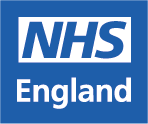NHS England carried out a public consultation on 'reducing prescribing of over-the-counter medicines for minor, short-term health concerns' from December 2017 to March 2018.
In the year prior to June 2017, the NHS spent approximately £569 million on prescriptions for medicines which can be purchased over the counter from a pharmacy and other outlets such as supermarkets.
These prescriptions include items for a condition:
- That is considered to be self-limiting and so does not need treatment as it will heal of its own accord;
- Which lends itself to self-care, i.e. that the person suffering does not normally need to seek medical care but may decide to seek help with symptom relief from a local pharmacy and use an over the counter medicine.
Vitamins/minerals and probiotics have also been included in the consultation proposals as items of limited clinical effectiveness which are of high cost to the NHS.
NHS England partnered with NHS Clinical Commissioners after CCGs asked for a nationally co-ordinated approach to the development of commissioning guidance in this area to ensure consistency and address unwarranted variation. Conditions for which over the counter items should not routinely be prescribed in primary care: Guidance for CCGs aims to provide a consistent, national framework for CCGs to use. A series of implementation tools to support CCGs are also available.
Further to the publication of this guidance a letter from Professor Stephen Powis (National Medical Director, NHS England) addressed to GPs was published. It provides reassurance that that the commissioner will not find practices in breach of the GP contract if they follow the CCG guidance on routine prescribing of OTC items.

Share
Share on Twitter Share on Facebook